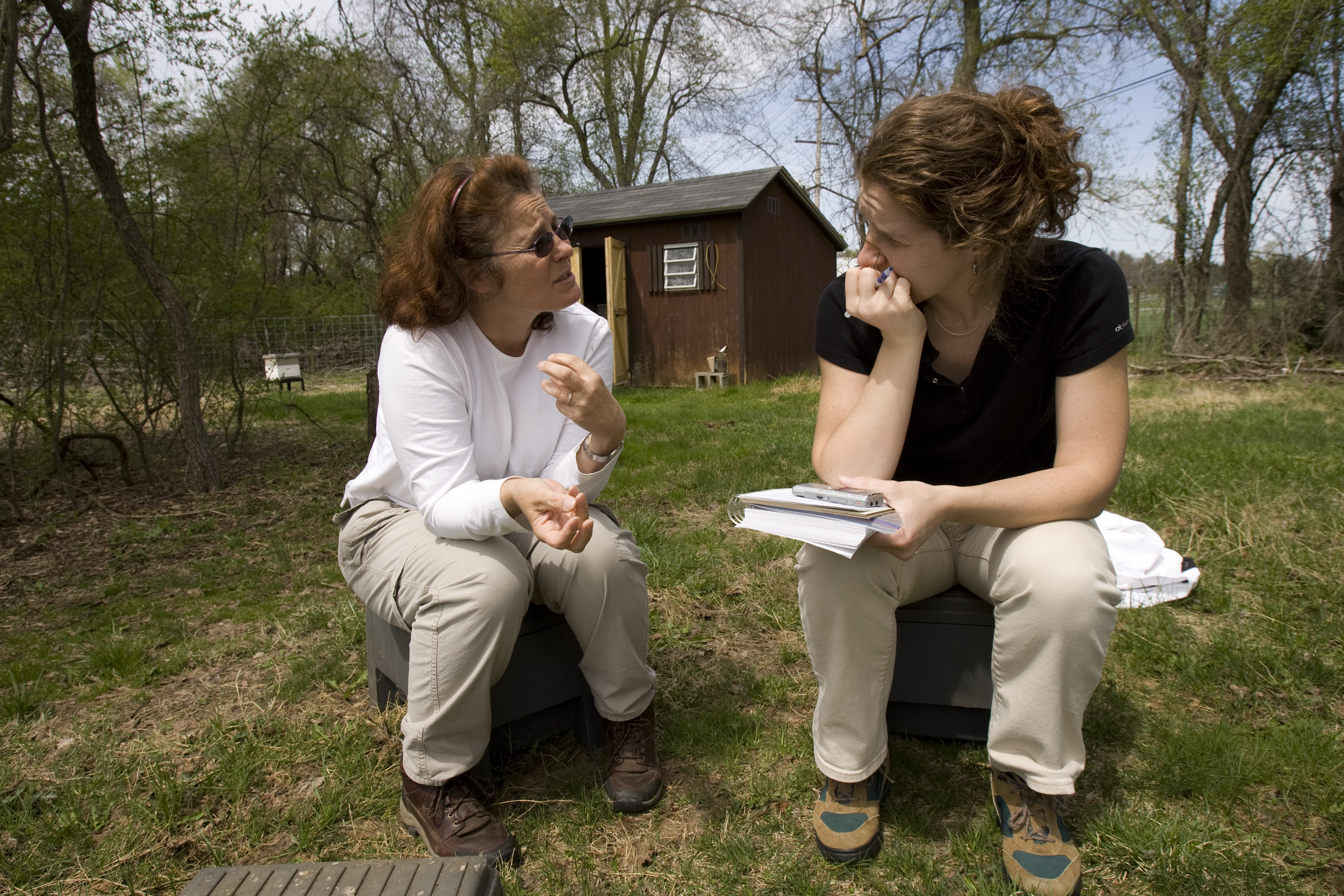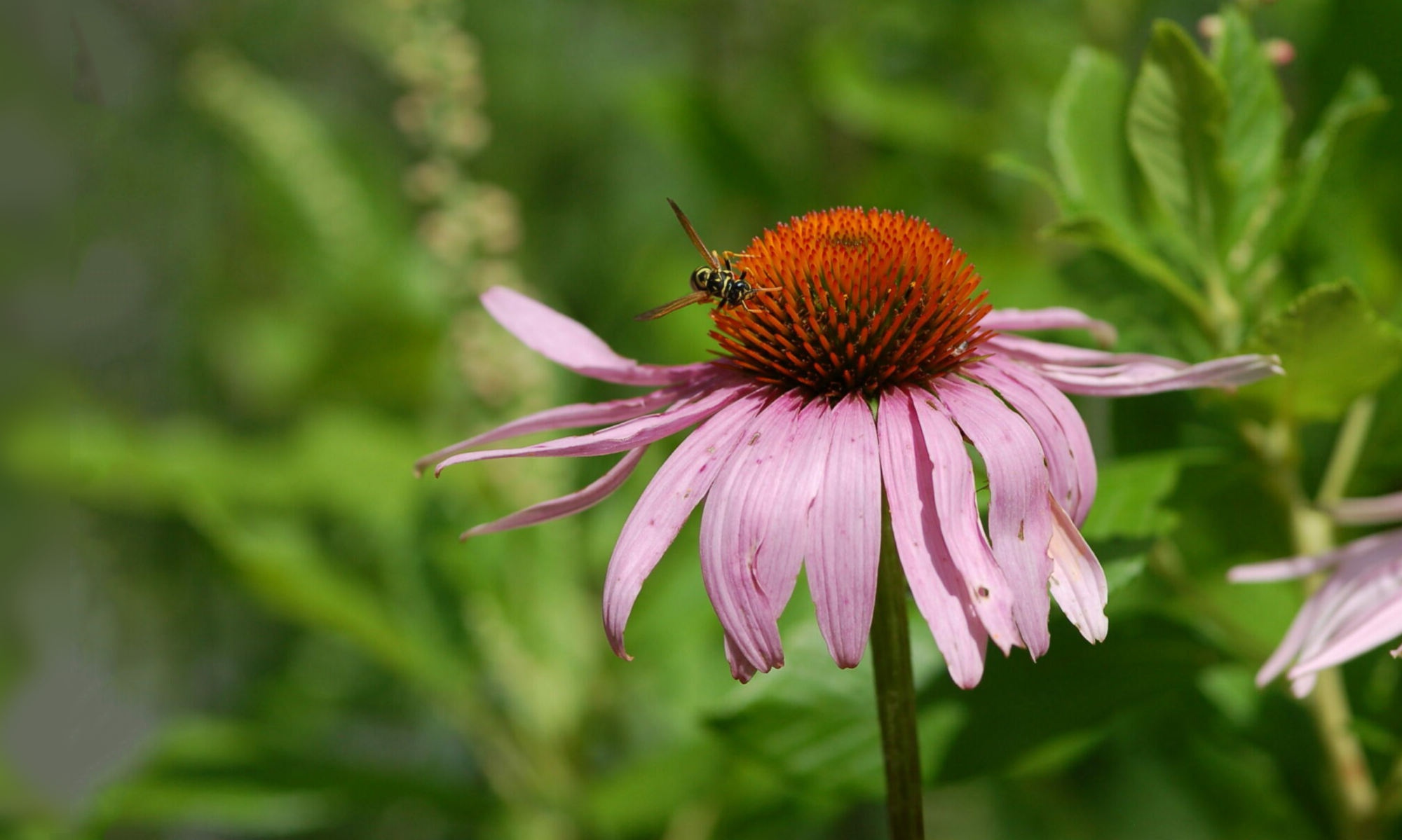
My Research | Teacher Resources | Discussion Guide
My Research
I didn’t know much about honey bees when I began this project, so I spent lots of time learning. I read books, interviewed scientists, and attended bee school. Seriously. Bee school. I have a diploma to prove it! I also spent time with the people who know bees best: their keepers. Mary Duane, former president of the Worcester County Beekeepers Association, invited me into her backyard apiary and patiently taught me how to work with bees and manage their hives. To her surprise (and mine!), Mary becoming a vital part of my story.
I also spent time in larger bee yards observing and talking to the men and women working to understand honey bees and their mysterious decline. Photographer Ellen Harasimowicz accompanied me on these research trips, and the photos she made are stunning. You can see them in the book, of course, but you can also view a collection in this photo gallery on Ellen’s website.
Teacher Resources
The Making of The Hive Detectives
Students and teachers can learn about the people and stories that shaped The Hive Detectives by reading this series of blog posts I wrote in 2010. Houghton Mifflin Harcourt has also created a Discussion & Activity Guide for the book, which includes Common Core connections. You can access the guide by clicking the link above. (It will download as a PDF.) Also, visit the Scientists in the Field website for updates on this and all the Scientists in the Field books.
Hands-on Activities for Students
The coolest activity, of course, would be to keep bee hives on your school property. You’d be helping the bees and your local environment, providing a great on-site learning experience, and producing honey. Obviously this option isn’t for every school. It requires a goodly amount of space as well a parent or staff member with a passion for bees who is willing to monitor and care for the hives. There are schools that do it, though, and I’d be happy to put you in touch with a few if you’d like to know more. Contact me at lgb (at) loreeburns (dot) com.
Local beekeeping organizations often support educators by sending beekeepers into classrooms, sometimes with an observation hive in tow. Most states have such organizations; search the internet to find one near you.
Even if you can’t keep honey bee hives on your school grounds, you can probably observe bees on your property during the warmer months. Check out your flowering plants, bushes and trees to see if local pollinators are visiting, then bring your students along for some up close encounters. You might also consider getting your classroom involved in The Great Sunflower Project, a simple citizen science project aimed at better understanding native bee populations. There are additional honey bee citizen science projects listed in the Web Resources section below. Be sure to check them out!
The Xerces Society maintains a great page of pollinator resources on their website, including instructions for making simple artificial nesting sites for various native bees. These nests can often be studied after the bees have abandoned them. For more information, and for links to sites with similar resources, visit the Xerces Society’s Pollinator Resource Center and click on your region of the country.
Although I have not yet gotten my own hands on a copy, NSTA Press released a curriculum guide called Citizen Science: 15 Lessons That Bring Biology to Life that is recommended for teachers working with students in grades 6-12. It is worth checking out!
Books with Related Themes
There are lots of great books for young people (and not-so-young people, too) that touch on the themes explored in THE HIVE DETECTIVES. Here’s an annotated list to get you started. Enjoy!
- THE CASE OF THE VANISHING HONEYBEES: A SCIENTIFIC MYSTERY, by Sandra Markle (Millbrook, 2014) — Written for a slightly younger audience than The Hive Detectives, this book gives a thorough overview of CCD and honey bees.
- BUZZ ABOUT BEES, by Kari-Lynn Winters (Fitzhenry & Whiteside, 2013) — A nonfiction celebration of honey bees and honey bee factoids.
- THE BUZZ ON BEES: WHY ARE THEY DISAPPEARING, by Shelley Rotner and Anne Woodhull (Holiday House, 2010)—This picture book for young children gives a good introduction to the important role honey bees play in human agriculture.
- HONEYBEES, by Deborah Heiligman (National Geographic, 2002) — A picture book introduction to the honey bee and its life.
- FLIGHT OF THE HONEY BEE, by Raymond Huber and Brian Lovelock (Candlewick, 2013) — A day in the flight of a fictional honeybee named Scout.
- THE BEE TREE, by Patricia Polacco (Putnam & Grosset, 1993) — Picture book fiction that will have readers researching the nearly-lost art of beelining!
- WHAT’S THE BUZZ? KEEPING BEES IN FLIGHT, by Merrie-Ellen Wolcox (Orca, 2015) — A nonfiction chapter book introduction to honeybees (other bees, too) and their lives, written in the first person by a beekeeper.
- REGARDING THE BEES, by Kate Klise and M. Sarah Klise (Harcourt, 2007)— A middle-grade epistolary novel chock full of bee humor.
- CLARENCE COCHRAN, A HUMAN BOY, by William Loizeaux (FSG, 2009)— A novel that lets readers get buggy.
- SOMETHING TO SING ABOUT, by C.C. Payne (Eerdmans, 2008) — A middle-grade novel about a girl with an unreasonable fear of bees.
- CLAN APIS, by Jay Hosler (Active Synapse, 2000) — This graphic novel BUZZES!
- HONEY BEES: TALES FROM THE HIVE, by Stephen Buchmann (Delacorte, 2010) — This history of bees and honey is written especially for young adults.
- THE ORCHARD, by Adele Crocket Robertson (Dial Press, 2005)— Robertson died before this memoir of the Depression years she spent working to save the family apple orchard was published. This is a book for older teens and adult readers.
- FRUITLESS FALL: THE COLLAPSE OF THE HONEY BEE AND THE COMING AGRICULTURAL CRISIS, by Rowan Jacobsen (Bloomsbury, 2008) — This book is written for adults, and is an excellent resource on the CCD crisis.
- THE BACKYARD BEEKEEPER, by Kim Flottum (Quarry Books, 2005) — Written for an adult audience, this is a great book for beginner beekeepers. THE BACKYARD BEEKEEPER’S HONEY HANDBOOK, a companion of sorts, is pretty sweet, too.
- QUEENSPOTTING: MEET THE REMARKABLE QUEEN BEE AND DISCOVER THE DRAMA AT THE HEART OF THE HIVE, by Hilary Kearney (Storey Publishing, 2019) — This is another book written for adults, but I adore its 48 fold-out, full-color hive images that challenge readers to find the queen bee among all her brethren. I think young readers will love these, too.
- THE STING OF THE WILD, by Justin O. Schmidt (John Hopkins University Press, 2016) — Even though this book is written for adults too, its premise will intrigue bee fans of all ages. Schmidt is a researcher and one of his passions is stinging insects. More specifically, he’s interested in the stings. He wondered which insect sting hurt most, which least, and where all the other ones fell in between. And, so, he went out and found all the stinging insects he could … and then he stung himself. Schmidt’s Pain Scale for Stinging Insects is a horrifying and surprisingly humorous read.
Web Resources
The Discover Life website has a wonderful collection of bee resources, from photographs to identification guides and beyond. Discover Life is also home to information on the citizen science project known as Bee Hunt. Other bee-themed citizen science projects include:
- Bumble Bee Watch
- The Xerces Society Bumblebee Project
- The BeespotterProject (Note: this project is for Illinois residents only.)
Haagen-Dazs has created a website to keep bee lovers and ice cream consumers aware of honey bee health issues. The site includes free, downloadable educational tools for teachers and parents. It’s called Help the Honeybees, and its worth a look. Whatever you do, don’t miss these public service announcements on the site:
If your students liked those hip PSAs, check out this bee rap video from MCMrNapkins. It is unBEElievably fantastic!
- The Worcester County Beekeepers Association is the oldest beekeeping association in the country, and its current members were a huge help to me as I wrote THE HIVE DETECTIVES. (Thank you Worcester County Beekeepers!) There are similar beekeeping organizations in most states; use the internet to find the ones near you.

